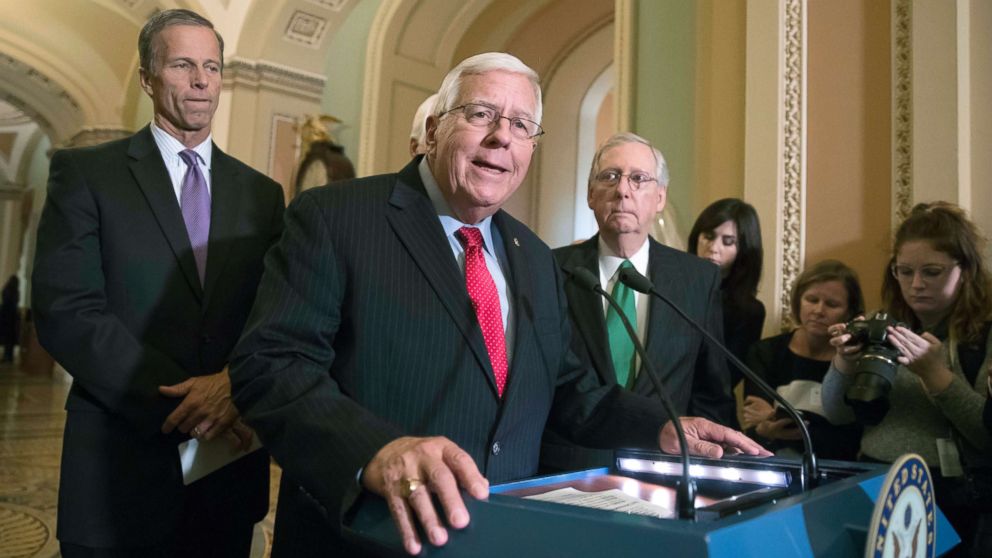Breaking down the fiscal 2018 budget passed by Senate
The measure is estimated to add $1.5 trillion to the deficit over 10 years.

— -- By a vote of 51-49, Senate Republicans passed a fiscal 2018 budget right along party lines, with every single Democrat voting against the budget framework, and all Republicans, save for one, voting for it.
The fiscal 2018 budget passed late-Thursday night is not a legally binding document, but it does serve as an outline of federal spending and revenues. It gives Congress some level of control over the appropriations process of how funds will be spent.
The measure is estimated to add $1.5 trillion to the deficit over the next 10 years, and contains about $5.1 trillion in spending cuts.
The bill now heads to the House for approval.
Comprehensive tax overhaul
The ultimate goal for the GOP is to overhaul the U.S. tax code system, which would be a much-needed victory for the party after numerous failed attempts at passing legislation earlier this year.
The budget framework sets up rules that allow for a reconciliation process that tells the Senate Finance Committee that a tax bill cannot be filibustered if it adds $1.5 trillion or less to the deficit over the next 10 years.
Under the process of reconciliation, the GOP tax bill only needs a simple majority of 51 votes to clear the Senate chamber. It also means Democrats will not be allowed to filibuster on the floor, a stalling tactic that requires 60 votes to break.
Republicans wouldn’t need a single Democratic vote to pass their tax bill under this process.
Cuts to Medicare and Medicaid
Democrats have warned more than $1 trillion will be cut from Medicaid, and about $470 billion will be cut from Medicare over a decade.
“This nasty and backwards budget green lights cuts to Medicare and Medicaid in order to give a tax break to big corporations and the wealthiest Americans,” Sen. Minority Leader Chuck Schumer, D-N.Y., said. “It shifts the burden from the wealthy and puts it squarely on the back of the middle class, and blows a hole in the deficit to boot.”
But the chairman of the Budget Committee, Sen. Mike Enzi, R-Wyo., has rebutted such claims as being “false accusations.”
“Let me be clear: The budget we have put forward does not cut Medicare. Medicare spending increases every year,” Enzi said earlier this month.
Oil exploration
The budget could also pave the way for opening up the Arctic National Wildlife Refuge in Alaska to oil exploration.
Nearly every Republican voted to block an amendment that would have protected the mass of land from oil exploration. Republicans can pass a bill that would open the land for drilling with a 51-majority in the Senate rather than the 60-votes needed for most legislation.




